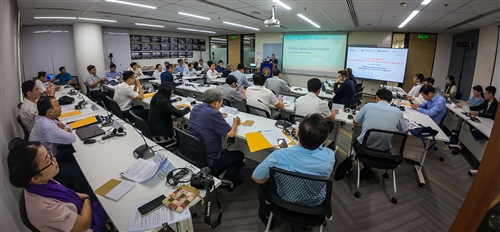Vietnam Digital Government Academy for Local Innovation Leaders (DGA)
The rapid urbanisation in Vietnam has increased the demand for infrastructure, but poor planning and zoning implementation have exposed infrastructure investments to risks from disasters and climate change. Insufficient and untimely maintenance also reduce the quality of public infrastructure service delivery, and the durability and longevity of the underlying assets. The traditional fragmented and paper-based approaches to public asset governance, together with institutional siloing, fail to address these problems as they hinder the integration of asset information for data-driven decision-making. While Vietnam's cities and provinces are rapidly realising digital government transformation to improve public asset governance, the focus is often on IT and technology investments.
Desired breakthroughs and results from digital government transformation require effectively addressing a set of complex behavioral, cultural, and institutional issues that are associated with the ‘people’ and the ‘process’ bottlenecks. Investments in the ‘people’ dimension include equipping subnational government officials with a minimal level of foundational and functional digital era skills, improving the awareness and appreciation for data-driven decision making, and building a culture of applying data and digital technologies across the government for better public asset outcomes (services, resilience, efficient and equitable public resource prioritisation).
The World Bank's Disruptive Technologies for Public Assets Governance (DT4PAG) program helps to address the aforementioned innovation frictions in public asset governance in provincial governments and promote successful digital government transformation through the complementary ‘people’ - ‘process’ - ‘technology’ pillars. DT4PAG's activities focus on three groups of public assets (i) urban transport infrastructure, (ii) public properties, and (iii) land resource.
The Digital Government Academy (DGA) is a key instrument to achieving the program's objectives under the ‘people' pillar by means of training programs that equip provincial government leaders and officials with foundational and functional skills to address public assets governance challenges with the help of technology platforms and data innovations. The DGA also aims to develop a network of Centers of Excellence (CoE), which encompasses research and training entities both domestically and internationally, to promote sharing of information, knowledge, and digital transformation practices. To fulfill these objectives, Fulbright will design and deliver dedicated curricula for digital skills leadership and adoption. This will be achieved through two specialized training programs for the two target groups: Executive Leadership Program (ELP) and Management Leadership Program (MLP)

